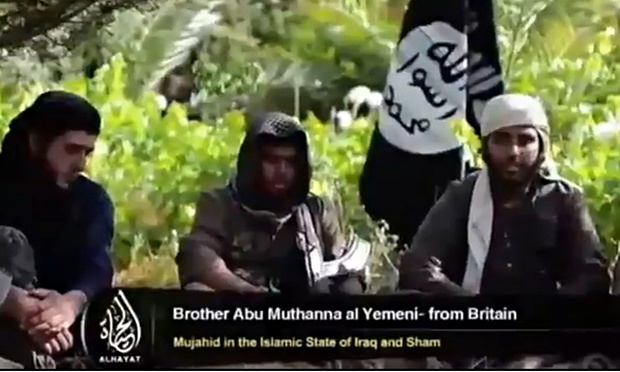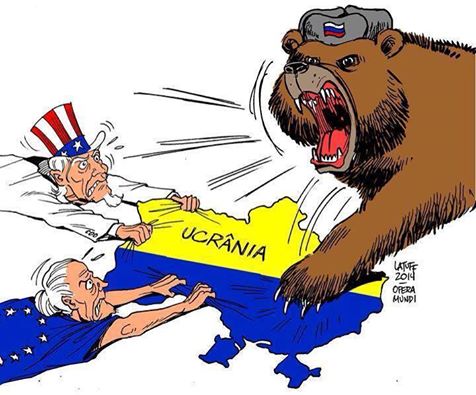After ISIS exploded onto the scene in the summer of 2014, the mainstream media was drawn to the visual appeal of the group’s propaganda videos. However, this fascination often led many observers to miss the message.
ISIS’ videos are enticing, featuring professional camera work, slick editing, and dramatic music that would not be out of place in a Hollywood action film. They are packed with combat scenes and jaw-dropping violence, a sharp departure from al-Qaeda’s videos, which feature static shots of leader Ayman al-Zawahiri delivering long-winded lectures to a stationary camera.
Yet ISIS’ videos are more than war and gore shot in HD. They create a narrative. Unlike al-Qaeda’s propaganda, in which terrorist elites command Muslims to take jihad upon themselves and attack enemies “near” and “far”, ISIS’ videos promise more. They offer inclusion, belonging, and the chance to be part of a new and dynamic society: the caliphate.
While al-Qaeda’s long-term vision entails the establishment of a global caliphate, the organization has never made credible steps toward its creation. Instead, it has focused on orchestrating highly coordinated military attacks on symbolic targets. The goal of these attacks is twofold: first, to provoke the West into a series of long conflicts in the Middle East and remove Western-allied governments from power. Al-Qaeda believes this would ultimately drive the West from the region. Second, the attacks seek to inspire the “silent Muslim majority” to carry out lone-wolf attacks against their own governments.
Thus, al-Qaeda’s terrorism strategy is based on a top-down approach. The organization is highly secretive and exclusive to experienced jihadists. While it seeks to inspire ordinary people to become lone wolves, the group rarely offers them a place within the organization or significant support.
Al-Qaeda’s exclusive, do-it-yourself nature is illustrated in both its propaganda and use of the Internet. The group’s propaganda magazine, Inspire, features detailed DIY guides to creating bombs and other weapons of terror. It also focuses heavily on glorifying military victories, celebrating martyrs, and promoting violent, retaliatory actions against the West. For al-Qaeda, fighting the enemy is of primary importance; theirs is a narrative of destroying and removing, rather than building and creating.
Online, al-Qaeda opts for highly structured, password-protected forums, which are monitored by AQ officials. Within these exclusive forums, the conversation is centred on a specific topic and dissident commenters will have their messages removed or be blocked from the forum. Al-Qaeda controls the dialogue.
While al-Qaeda is organized like a clandestine intelligence service, ISIS has modeled itself after a populist political party. Its online presence is inclusive, not exclusive, and makes extensive use of interactive social media sites like Twitter, Facebook, and YouTube. In 2014, ISIS launched a hashtag campaign that supporters across the globe could use to show their support for the caliphate. Promotional videos underscore the role of fighters from the lower ranks, not just the commanders, and focus as much on governance as on violence.
In contrast to Inspire’s military focus, ISIS’ magazine, Dabiq, frequently highlights state-building initiatives and calls not just on militants, but on doctors, engineers, and professionals of all kinds to travel to ISIS-held territory. By emphasizing its provision of services and twisted brand of civil order, ISIS appeals to disenfranchised Sunnis, who have come to see the group as an alternative to oppressive Shi’a governance.
This strategy also sends a message to foreign recruits, who see the caliphate as a place where they can fit in and be part of something new and exciting. Focusing on governance and societal inclusion allows ISIS to go “glocal”— addressing the grievances of local Sunnis, while simultaneously attracting recruits across the globe.
This narrative of state-building and societal inclusion is what makes ISIS dangerous, not only in the increasingly sectarian Middle East, but also to Western governments trying to counter ISIS recruiters.
While there is no perfect profile to identify potential terrorists, Scott Atran, a renowned anthropologist and terrorism analyst, says that Western volunteers are often youth in transitional stages of their lives. Recruits are frequently recent converts to Islam, immigrants struggling to fit into a new society, students who have left their home and family, or those between jobs or relationships that struggle with loneliness and isolation. Recent converts are generally less knowledgeable about their new religion, and thus more susceptible to recruiters who invoke notions of religious obligation as a recruitment tactic.
The narrative of inclusion and belonging, which ISIS has carefully crafted, fits the profile of a potential terrorist volunteer like a tailored suit. In an interview with The Atlantic, Alberto Fernandez, coordinator of the U.S. State Department’s Center for Strategic Counterterrorism Communications (CSCC), observed: “ISIS’ message is that Muslims are being killed and that they’re the solution. … There is an appeal to violence, obviously, but there is also an appeal to the best in people, to people’s aspirations, hopes, and dreams, to their deepest yearnings for identity, faith, and self-actualization.”
Constructing a narrative that successfully targets the lonely is likely why ISIS has been more successful at recruiting Westerners than al-Qaeda.
ISIS’ tailored approach to recruitment is particularly challenging to Western counterterrorism officials. Analysts like Atran and Fernandez strive to counter this powerful narrative, but meet the same fundamental problem: they have the “don’t do this” message, but lack the “do this instead” one.
In both the West and the Middle East, integrating disenfranchised Muslims by providing “alternative heroes” and a sense of belonging to potential recruits can help stem the attraction of ISIS. But in both a Middle East divided along sectarian lines and an increasingly Islamophobic West, this is no easy task.




